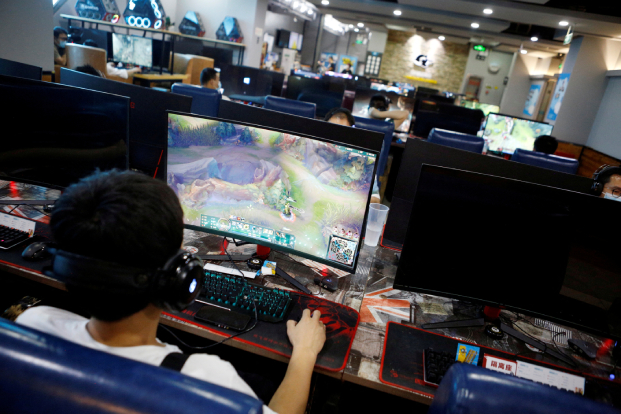China’s video-game market shot back up this year with domestic revenue rising 13% to 303 billion yuan ($42.6 billion).
Officials from the industry association CGIGC said at a conference in Guangzhou on Friday this was the first time that the sector’s domestic revenue had topped 300 billion yuan.
It also said the number of gamers in China grew 0.61% to a record 668 million, which is more than North America’s entire population.
ALSO SEE: US, China Race to Stop Quantum Computers Stealing Every Secret
The return to growth is an important turnaround for the world’s biggest gaming market after China’s gaming revenue shrank for the first time last year following Beijing’s 8-month crackdown on the industry over gaming addiction concerns.
Games developed in China continued to grow as Beijing emphasized the need for self-sufficiency in technology. Annual revenue from homegrown games grew to 256 billion yuan, up 15% over the previous year.
Revenue from Chinese games in foreign markets, however, took a hit after countries like India increased scrutiny of them on national security grounds. China’s overseas games revenue fell 5.65% to $16.3 billion in 2023.
Anime-style games from China such as miHoYo’s “Genshin Impact” gained popularity and expanded revenue, while anime-style games on smartphones posted a 31% growth to 31 billion yuan this year as compared with last year.
The recovery of China’s gaming industry is reflected in Chinese gaming giant Tencent‘s return to growth this year after posting its first-ever revenue decline last year.
Tencent launches new party game
Meanwhile, tech giant Tencent on Friday launched “DreamStar”, a new party game that has been widely anticipated by users and pegged by analysts to pose a threat to domestic arch rival NetEase.
“DreamStar”, in which gamers play as cartoon characters to race in an obstacle course, is seen as Tencent’s move to take on NetEase’ massively popular game “Egg Party”, a surprise hit which has helped lift NetEase shares by more than 40% this year.
JPMorgan analysts said in a note on Thursday that the launch of “DreamStar” could impact NetEase revenue by 2% to 3%. The bank also trimmed its forecast for NetEase revenue for the next two quarters by 4% and 5% respectively.
“Egg Party” is forecast to be on track to earn an annual revenue between 7 billion yuan and 8 billion yuan ($980 million and $1.1 billion) this year, according to a Goldman Sachs note.
As Tencent’s answer to “Egg Party”, Goldman expects “DreamStar” to earn between 5 billion and 6 billion yuan in its first year.
NetEase’s market capitalisation reached $67 billion on Friday, a day after surpassing food delivery giant Meituan to become China’s fourth-biggest internet company.
Tencent remains China’s biggest internet company. It is the world’s biggest video games provider and it operates China’s leading social network app WeChat.
Tencent has been in search for new hit gaming titles as competition from other game developers like NetEase and miHoYo, producer of “Genshin Impact”, intensifies. Tencent unveiled its most ambitious console title, “Last Sentinel”, this month.
- Reuters with additional editing by Jim Pollard
ALSO SEE:
Tencent Pouring Resources Into Big Budget Console Games
China Proposes Eight-Minute Limit on Smartphone Use by Kids
Approvals Signal an End to China’s Gaming Crackdown
China Videogame Sector Reports First-Ever Drop in Revenue
China Slashes Online Gaming to Three Hours a Week for Young People
Tencent Curbs Video Games After State Media Calls Them ‘Spiritual Opium’
























